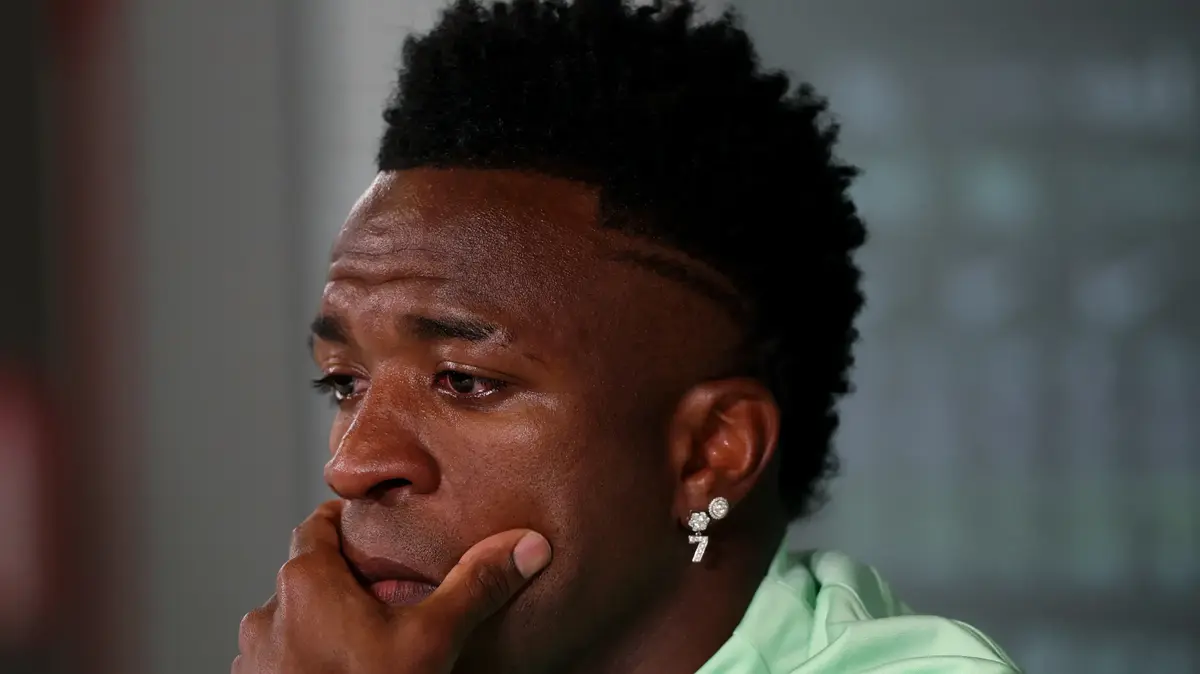How strongly racism is still present in German football is shown by the extremely worth seeing documentary “Black Eagles”, which can now be seen on Amazon Prime.
On June 18, it will be shown on ZDF.
Switching on should be a must - not just for football fans.
In 1974 Erwin Kostedde was the first black German national player to play an international match
Every black player has experienced hostility in their life
Often it is not just verbal attacks
At the beginning there is a warning.
“The following documentary shows potentially traumatizing content such as racist insults, assaults and racially motivated violence.
Please make sure that you and those around you are prepared for it when you watch the film. ”This should be taken to heart - even as a white viewer.
What
can be seen
in the documentary
“Black Eagles”
is often almost unbearable for anyone with the ability to empathize.
Again and again you ask yourself: What's wrong with these people?
The dark-skinned soccer players throw bananas and oranges on the field in front of their feet;
imitate the monkey sounds;
who, huddled together in a large group and therefore strengthened in their arrogance, chant: “Negroes out!” Unity and justice and freedom?
It's only in their minds for those who fit into their scheme.
Noble patriots.
As of today, Torsten Körner's instructive and harrowing documentation can be seen on the streaming provider Amazon Prime, and on June 18, it will also be shown on ZDF.
It's not just a movie for soccer fans.
Just like racism doesn't just happen in stadiums.
Football is a reflection of society, it is rightly said.
Because football is a German national sport.
But who actually defines who belongs to this German people?
+
Erwin Kostedde (center) was the first black man to play for the German national team in 1974.
© Broadview
With archive recordings, Körner looks back at the time of National Socialism, when this question was answered according to racial ideological criteria.
After the end of World War II, the country may have been in ruins - but the hatred lived on in people's minds.
“The worst were the young men, the 17-, 18-, 19-year-olds,” recalls Erwin Kostedde, who later became the first black man for the German national soccer team in 1974. In the immediate post-war period, the son of an African American suffered from the attacks of the fair-skinned boys.
“They were in the Hitler Youth.
Now Germany had lost the war.
I was their enemy. "
Erwin Kostedde wanted to wash away his dark skin
You can have a lot of fun looking at advertisements from the 1950s and 1960s.
But with the commercials that Körner plays to document the ubiquitous racism in the young Federal Republic of Germany, laughter gets stuck in your throat.
It is not surprising that as a boy Kostedde had the idea to try using curd soap to wash off his dark skin color - the ideal of the white person was thrown at him even in harmless laundry detergent advertisements.
The film clips from the documentary “Toxi lives differently” (1957) about the children of American “Negro soldiers” and German mothers are also hard to grasp.
The reporter asks the single (white) woman full of astonishment with a look at her dark-skinned son: “What is he supposed to be?
He can't go to the circus, can he - or do you think that's a solution, that he'll go to the circus later? ”And when the mother asked the no less hideous question whether she had never thought about“ giving away ”the children, no, followed by a perplexed: “No?
Why not?"
Racism, of all places, in the "Stadium of Friendship"
What does all of this have to do with football?
The sports professionals in the documentation make it clear: a lot.
What they all have in common is that they experienced the feeling of belonging for the first time in their lives on the football field.
For them, who often had to (and have to) experience racism, sport became an island of salvation.
But in football they also experienced the limits of this belonging.
Scenes from a game between Cottbus and Hanover in 1997, of all places in the “Stadium of Friendship”, make this very clear.
Otto Addo and Gerald Asamoah were shouted down for minutes by spectators with the slogan: “Negroes out!” Neither the referee nor those responsible for the host Cottbus intervened.
+
Women's soccer professional Steffi Jones was also often attacked.
© Carmen Jaspersen
But there are also many cheers.
Especially often for Asamoah, the first German national team player to be born in Africa.
In 2001 he scored a goal in his first international match.
The commentator exclaims enthusiastically: “German football has a new favorite.” Of course, that has a taste.
Those who perform well are part of it.
Moderator Shary Reeves draws attention to this aspect, who herself had great football ambitions - and had to endure double discrimination: being black and playing football is special - but then still female?
Maybe - if you have the strength - you have to do it like ex-professional Jimmy Hartwig: beat your opponents with their weapons.
In his cheerful manner, he tells how a horde in the stadium once shouted for minutes: “Negro pig!
“And Hartwig?
Stand in front of the roaring people and swing an imaginary baton.
"That was great - I conducted the biggest idiot choir in the world."


/cloudfront-eu-central-1.images.arcpublishing.com/prisa/RARRQKA3PYURRZK7PVX2YEEKQE.jpg)
/cloudfront-eu-central-1.images.arcpublishing.com/prisa/77MG57WPDAGCADFCYNIRTMWR5Y.jpg)


/cloudfront-eu-central-1.images.arcpublishing.com/prisa/OQOPOGVRBZFGBI4Y35NYO4PIQA.jpg)


